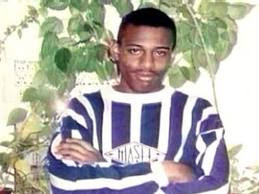It’s wonderful when two items in the news reinforce the insights each provides. Synchronicity, one might call it, or does that imply that the events described are gratifying? Because these ones certainly aren’t.
First, there’s the furore over the revelations by Edward Snowden. It seems our esteemed British institution, GCHQ or the Government Communications Headquarters, has been tapping fibreoptic cables and gaining access to colossal volumes of internet and telephone communications – as many as 600 million phone calls a day. Mind-blowing stuff.
 |
| GCHQ. A building as impressive as the Pentagon. And an organisation just as troubling. |
I didn’t know there were enough people to say that much to each other on a daily basis. Perhaps it’s just proof that we always find things to talk about even when we don’t have much to say.
Now I have mixed feelings about GCHQ’s activities.
In the first place, it reassures me that nobody can do anything with 600 million phone conversations. At least, not with all of them. It seems there are nearly 6000 employees at GCHQ, so it’s pretty easy to do the arithmetic: if none of them did anything else, each would have to listen to 100,000 messages a day. Since there are fewer seconds than that in 24 hours, they clearly aren’t listening to the lot.
More positively, I actually favour intelligent intelligence work. It’s what has kept the terrorist attacks in the West down over the last few years. And as well as being more effective, it strikes me as infinitely preferable, morally, than invading another country, killing a lot of civilians, and then clearing off again with our tails between our legs with nothing resolved.
On the other hand, even if our governments are making good use of this intelligence right now, there’s no guarantee they always will. That’s where the other news item becomes so interesting.
A second scandal that has been running and running, and has erupted again int he last few days, concerns the police penetration of various environmental groups, such as Greenpeace, for several years from the mid-nineties. Some of the undercover cops took their James Bond fantasies a long way, forming relationships with a several women and then abandoning them, some with kids they’d fathered. All a little upsetting, if I can indulge in a little British understatement, particularly as the organisations targeted were often no more threatening to society than groups of tree-huggers.
What makes things worse is that allegations have now emerged, from one of those cops turned whistle blower, that some of the undercover operations were directed against the family and friends of Stephen Lawrence. He was the black teenager murdered by a racist white gang while he was waiting for a bus home, twenty years ago. It’s clear the spying wasn’t designed to uncover crime, but to try, by discrediting their targets, to protect the reputation of the Metropolitan police which was making a complete hash of its investigation of the murder.
 |
| Stephen Lawrence, victim of a racist murder The police apparently ran an operation against his family |
So at the time that the Lawrence family, and Brooks as an eye witness, were depending on the police to help them obtain justice for an appalling crime, they were themselves targets for covert police action designed to discredit or even jail them. No wonder justice was for so long denied them (just two of the perpetrators have been convicted so far, and only last year, though it is well known who carried out the killing). We should probably just be grateful they escaped being made victims of even greater injustice themselves.
Now set that second story alongside the first. I bet you that somewhere among those 600 million phone calls a day, it will always be possible to find a few by some new victim of police harassment. And by selecting odd sentences out of context from some of them, and stringing them together, to present a damning picture of that victim. That could then be leaked to some open gutter masquerading as a newspaper, to turn the victim’s life into a living hell.
The Lawrence case shows what the police are capable of when they lash out in self-defence. Why not other parts of the security state? Why not ill-intentioned groups on the extreme fringes of our political life? Why not some of the deeply unhealthy elements in those fringes that now look poised to make a bid for a share of power in the future?
I’m keen on seeing intelligence intelligently used. But far less keen on the indiscriminate collection of information, with no clear security goal defined. Particularly as we know how easily secretive organisations can be tempted to abuse the power this gives them.
I could not say it any more eloquently. I'm really afraid for Snowden. Bradley Manning has been persecuted for years. (Dare I say tortured?) I'm sure Snowden will face the same treatment, if he ends up back in the U.S.
ReplyDeleteHasn't he done wel so far? I wish him luck. I certain hope he avoids Manning's fate. It shocks me that he's being treated such cruelty - that at least is unnecessary. A ghastly business.
ReplyDeleteThere's a lot to be said for information overload.
ReplyDeleteYes, but sadly information overload isn't protection enough. In the hands of the wrong people - and the Lawrence case shows the police are the wrong people - a selection from the overload can be made and used to target individuals, even though they're innocent of any crime.
ReplyDelete